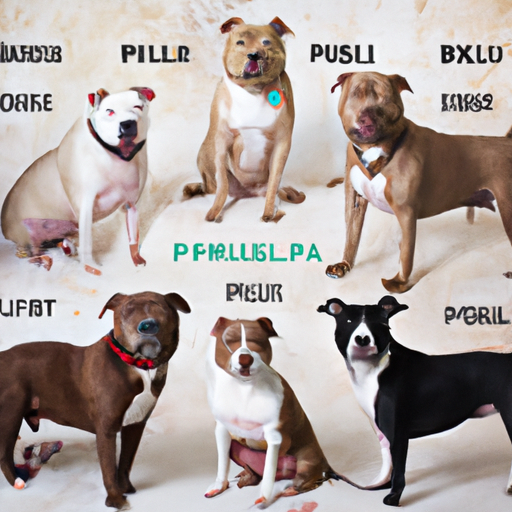When it comes to understanding the world of dogs, pit bulls can be a true enigma. Pit Bull is a term often used to describe a certain type of dog, but it’s not a single breed. Rather, it refers to a group of breeds, each with their unique characteristics. This article will explore in detail what dogs are considered pit bulls, their traits, and their history.
Table of Contents
- Understanding Pit Bulls
- Breeds Considered as Pit Bulls
- Traits of Pit Bulls
- The History of Pit Bulls
- Myths and Facts About Pit Bulls
- Frequently Asked Questions
Key Takeaways
- Pit Bulls refer to a group of dog breeds, not a single breed.
- Breeds often categorized as Pit Bulls include the American Pit Bull Terrier, American Staffordshire Terrier, and Staffordshire Bull Terrier.
- Pit Bulls are known for their strength, intelligence, and loyalty.
- There are many misconceptions about Pit Bulls due to their history and media portrayal.
- Responsible ownership is key to having a well-behaved and balanced Pit Bull.
Understanding Pit Bulls
The term Pit Bull is often used generically to describe dogs with similar physical characteristics. More often than not, any dog that has a strong, muscular body, a square-shaped head, and short hair could be labeled as a Pit Bull. However, this can lead to confusion and misidentification. Let me give you an in-depth understanding of what dogs are considered pit bulls.
Breeds Considered as Pit Bulls
There are four breeds commonly referred to as Pit Bulls.
-
American Pit Bull Terrier: This is the breed most people refer to when they use the term “Pit Bull”. They are medium-sized dogs known for their strength and intelligence. The United Kennel Club and the American Dog Breeder’s Association are the only registries that recognize the American Pit Bull Terrier, but they do not recognize the American Staffordshire Terrier.
-
American Staffordshire Terrier: Also known as “AmStaff,” they are slightly larger and heavier than the American Pit Bull Terrier. The American Kennel Club recognizes this breed but does not recognize the American Pit Bull Terrier.
-
Staffordshire Bull Terrier: They are smaller than both the American Pit Bull Terrier and the American Staffordshire Terrier but are known for their similar physical characteristics and temperament.
-
Bull Terrier: Known for their unique “egg-shaped” head, they are less likely to be confused with the other three breeds but are still classified as a Pit Bull due to their historical origins.
Traits of Pit Bulls
Pit Bulls are known for their strength, intelligence, and loyalty. They have a strong desire to please their owners, making them highly trainable. However, they also have a high energy level, which means they require regular exercise to keep them balanced and healthy. Here’s a link that talks more about the personality traits of pit bulls.
The History of Pit Bulls
Pit Bulls have a history that’s rich, colorful, and often misunderstood. Their ancestors were bred in England for blood sports like bull-baiting. When these sports were outlawed in the 1800s, breeders started using them for dog fighting, which is how they got the name “Pit Bull”. Despite their tough past, they were also known to be excellent family pets, farm dogs, and even war heroes.
Myths and Facts About Pit Bulls
There are many misconceptions about Pit Bulls, mainly due to their history and portrayal in the media. You can read more about these myths and the facts that debunk them here.
Frequently Asked Questions
Q: Are Pit Bulls inherently dangerous?
A: No breed of dog is inherently dangerous. Behavior largely depends on how a dog is raised, trained, and socialized.
Q: Are Pit Bulls good family dogs?
A: Yes, Pit Bulls are known for their loyalty and love for humans. They can be excellent family dogs when raised in a loving, responsible environment.
Q: What’s the lifespan of a Pit Bull?
A: The average lifespan of a Pit Bull is around 12-14 years, but this can vary based on their health and care.
In conclusion, Pit Bulls are a diverse group of breeds with a rich history and unique traits. Like any dog, they require responsible ownership, training, and socialization. For more information about Pit Bulls, you can check out these articles about Pit Bull Training, Choosing a Pit Bull, and Pit Bull Health. Remember, every dog deserves a chance to shine, regardless of their breed or history.



